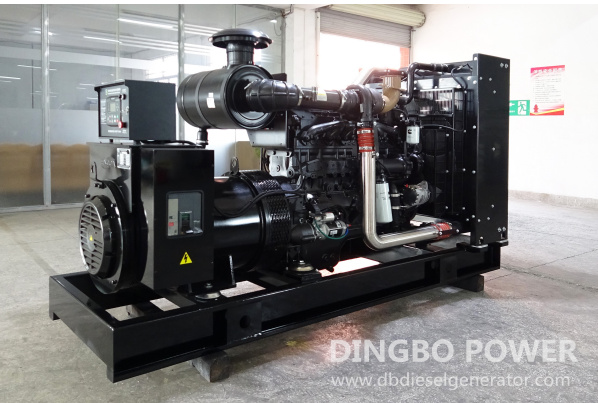dingbo@dieselgeneratortech.com
+86 134 8102 4441

- Home
- Products
- About Us
- Service
- News
- Technical Support
- Contact Us
dingbo@dieselgeneratortech.com
+86 134 8102 4441
Oct. 28, 2025
As a backup or main power source, the stability and reliability of diesel generator sets are directly crucial to the proper operation of electrical equipment. However, long-term idling operation (i.e., the genset running at low speed for extended periods under no load or low load conditions) can cause significant damage to its performance, lifespan, and operational efficiency. This mode of operation not only contradicts the design intent of diesel engines but may also trigger a series of chain reactions leading to faults, increasing maintenance costs and the risk of downtime.
After the diesel generator set is shut down, the circulation of cooling water stops immediately, and the heat dissipation capacity drops sharply. At this point, heated components such as the cylinder head, cylinder liner, and cylinder block rapidly increase in temperature due to the loss of cooling, leading to:
Thermal cracks: Uneven expansion of metal materials under high temperatures causes stress concentration, potentially leading to cracks (e.g., cylinder head cracks).
Piston seizure: Excessive piston expansion reduces the clearance with the cylinder liner, increasing friction. In severe cases, the piston may seize within the cylinder liner, causing cylinder scoring or liner rupture.
If the engine is shut down abruptly under load, residual high-temperature gases in the cylinder continue to heat the components, creating a heat soak-back effect, which further exacerbates thermal stress damage.

After shutdown, the oil pump stops working, and the lubricating oil film on friction surfaces (such as crankshaft bearings, piston rings) quickly dissipates. If the engine is not allowed to idle for cooling, direct contact between component surfaces drastically increases the friction coefficient, leading to accelerated wear. Subsequent starts may cause more severe component wear due to poor lubrication, creating a vicious cycle.
Under high temperatures, oil viscosity decreases, and its oxidation resistance weakens, making it prone to sludge and carbon deposits, thereby shortening the oil's service life.
High temperatures cause components , such as pistons, cylinder liners, to expand. If the diesel engine is shut down without gradual cooling, excessive reduction in piston-to-liner clearance increases friction resistance and may even lead to seizure. Under prolonged thermal stress, components may undergo permanent deformation, affecting sealing and power output.
Turbocharger bearings rely on oil for lubrication and cooling. An abrupt shutdown may cause bearing seizure due to oil starvation and high temperatures, resulting in turbocharger failure.
So what scenarios allow emergency shutdown of diesel generators? Typically, when severe abnormal knocking sounds, component failure, or seizure of moving parts occur, the engine poses a threat to operator safety, or fire or other serious natural disasters occur, the emergency shutdown of diesel generators are allowed.
After shutdown, immediately inspect the generator set to identify the cause of the fault. Avoid repeated starting attempts within a short period; perform maintenance only after the unit has completely cooled down.
How to correctly shut down diesel generators? First, gradually disconnect the load via the control panel or circuit breaker to avoid sudden current changes impacting the generator and power grid.
After unloading, allow the generator to idle (800-1000 r/min) for 3-5 minutes (3 minutes in winter, 5 minutes in summer) to allow temperatures to decrease gradually. Then press the stop button and observe whether the unit shuts down according to the set procedure. Please avoid forced power cuts.
Regular maintenance is vital to keep the performance of diesel generators. Start and run the generator set for 15-20 minutes weekly to prevent oil sedimentation and component rust. For standby generators idle for over a month, perform oil sealing treatment to protect the internal engine.
Quicklink
Mob.: +86 134 8102 4441
Tel.: +86 771 5805 269
Fax: +86 771 5805 259
E-mail: dingbo@dieselgeneratortech.com
WhatsApp: +86 134 8102 4441
Add.: No. 10 Kechuang Road, High tech Zone, Nanning, Guangxi, China